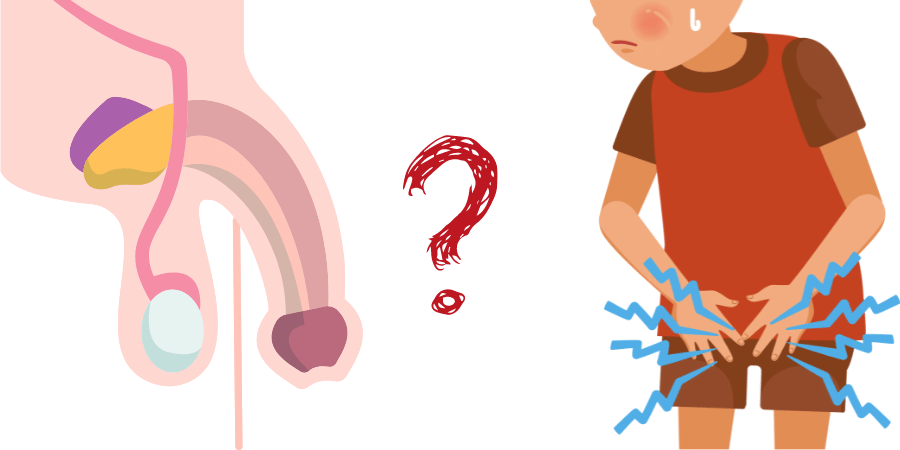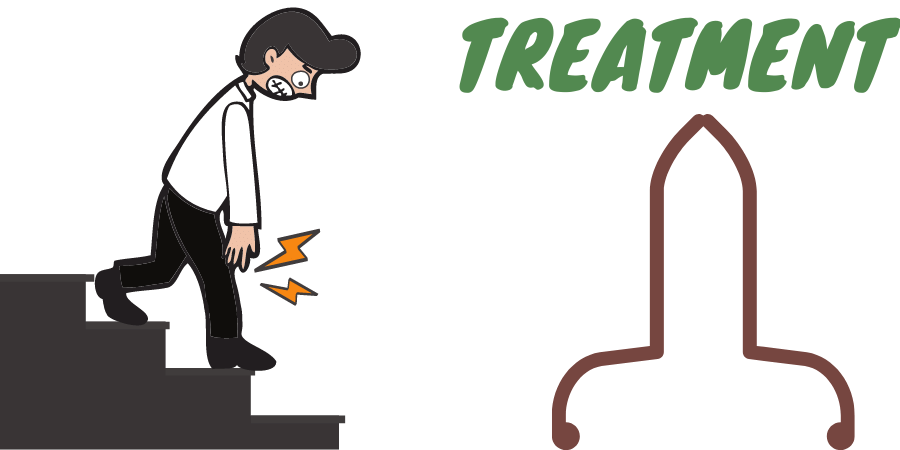You have a good idea of what your penis looks like every day. So, if you see peeling or irritated skin on your penis, you should take it seriously.
Though peeling skin under foreskin problem is very common, the glans (head), shaft, the frenulum (the elastic component linking the head to the body), and scrotum can all be affected by peeling or irritated skin.
Peeling skin can be unsightly, but it can also be painful and itchy for the person who has it.
However, the majority of cases may be handled at home. However, going to the doctor is necessary for some situations. The treatment depends heavily on the underlying problem.
Contents
Why Do Decent Penises Suffer Misfortune?
A few of the leading causes of peeling or irritated foreskin on the penis are outlined in this article.

Yeast Infection
Even males can get a yeast infection, and you’ve likely got an infection if you’ve observed peeling skin under your foreskin. Because of the folds in the foreskin, uncircumcised penises are particularly vulnerable.
Additionally, poor hygiene, antibiotic use, and underlying medical disorders contribute to an increased risk of infection. For example, balanitis, a condition caused by an untreated yeast infection, can develop if not addressed on time.
Balanitis
Inflammation and swelling of the foreskin, or glans, is known as balanitis. Balanitis, which is more frequent in uncircumcised penises and can be caused by slacking on penile cleanliness, affects about 5% of penises. It can also be caused by diabetes or a sexually transmitted disease, such as HIV.
If you feel you have balanitis, you should see a doctor immediately because it could signify something more serious.
Balanitis can cause groin and genital itching, discomfort, and pain. Irritation is severe enough that the skin peels and flakes in some instances.
Friction
Masturbation and rough intercourse, which can be both dry, unlubricated sexual practices, can create enough friction to cause peeling skin under the foreskin.
“Spanking the Monkey,” “Flogging the Dolphin,” “Choking the Chicken” are all examples of the kind of daily abuse that some penises endure. Isn’t it more kind and considerate to use lubrication and polish the family jewels?
Wearing too-tight pants or slacks without underwear can potentially create friction irritation. If this is the case, you may want to put away your skinny jeans.
Skin Dryness
It’s a simple one, so don’t worry about it. Penises, like hands, can chafe under certain conditions.
In cold weather, low humidity, extended contact to hot water (which strips your skin of more of its natural oil), or harsh soaps, dry skin might develop.
Psoriasis
Groins are affected by this illness, which is caused by an auto-immune and inflammatory process. Non-contagious and can begin at any age, including babies; it’s not a disease. Genital psoriasis can cause red, glossy spots on the glans or shaft of the penis. Even the skin folds between one’s hips, and groin might be affected by these patches.
A common misconception is that genital psoriasis looks like different forms of skin disease. Genital psoriasis, unlike psoriasis patches on other regions of the body, is not scaly. However, it has the potential to create the illusion of peeling, raw skin.
Sexually Transmitted Infections
Many sexually transmitted infections (STIs) can cause peeling or irritated skin.
Itching caused by genital herpes may be mistaken for dry skin. HPV, another common STI, is the same way. Syphilis can cause a rash to appear on any part of your body, including your face and neck.
If you’ve had unprotected sex and are experiencing peeling skin on the penis, you should consult your physician. You and your sexual partners are both at risk of contracting STIs, which can have life-threatening consequences.
There are some STIs that don’t show any symptoms at all. So again, see your doctor if you’re worried about contracting the disease.
Herpes
Herpes is a sexually transmitted infection (STI) that can cause itching, tingling, fluid-filled blisters, and skin ulcers. This condition can be affected anywhere in the scrotum or on the penis.
Blisters may appear to peel off the skin if they burst and ooze as they pop. In addition, flu-like symptoms may be present.
Syphilis
A chance, a small sore, may occur at the site of infection in the early stages of syphilis, an STI. The chancre would appear on the penis if it infiltrated via the skin there.
Innocuous chancres can cause the skin to peel off in certain people. In the later stages of untreated syphilis, a rash may appear all over the body. Wart-like growths may also appear on the penis’s shaft. Fever and a sore throat are some symptoms that might be mistaken for the common cold.
Scabies
Microscopic bugs that live in the skin are the cause of scabies.
Contacting an infected person or with items they’ve recently touched can transmit scabies. The mites can survive without a host for up to four days. However, if the infected person sets up shop in the groin area, they may cause discomfort.
Don’t panic if you’ve heard of the long-term itch about scabies; scabies is no longer a serious problem with current treatment options.
Eczema
Eczema is a skin disorder that is not contagious. However, it can induce severe itching and a dry, scaly rash and swelling. Blisters packed with fluid can also develop as a result of this. Peeling skin may be the result of these blisters oozing and scabbing.
It is possible to get eczema on any part of your penis. In addition, products like hand soaps, detergents, lotions, and fabrics can irritate or cause allergies.
Dry, itchy skin is more often known as “eczema” than its actual cause. Eczema is a chronic skin condition defined by continuous skin irritation, and it can be brought on by any of the factors mentioned thus far.
Allergic Reaction
An allergic reaction to a substance or material can cause the skin on the penis to become inflamed or even peel. Latex, spermicide, laundry detergents used on underwear, lotions/lubricants, and even the fabric of your clothes are all potential culprits. You may want to avoid those.
When Should You Seek Assistance?

See a doctor if peeling penile skin under your foreskin doesn’t react to at-home treatment or lasts more than a few days.
Consult your doctor if you suspect you’ve gotten an STI, and your symptoms improve.
Balanitis can be caused by an STI and should be checked up by a doctor.
If you’re experiencing peeling penis skin along with additional symptoms, such as:
- There is no benefit to using home remedies.
- After a few days, symptoms may get worse or remain the same.
- Symptoms only develop after unprotected sex has taken place.
- A burning feeling while peeing, for example, or a discharge from the glans, may indicate a urinary tract infection.
How Will A Doctor Reach A Diagnosis?
Many of these illnesses can be diagnosed visually by a physician. A skin patch test may be ordered by your doctor if they have any reason to believe you may be allergic to something.
Blood and urine testing can be used to diagnose sexually transmitted illnesses.
A patch test may be provided to determine if you are allergic to something.
If your doctor suspects a yeast infection, your discharge may be cultivated and examined under a microscope.
Treatment

Peeling or inflamed skin under the foreskin of the penis can be treated with the home remedies listed below. Always follow the manufacturer’s instructions while taking an over-the-counter (OTC) drug.
Creams containing corticosteroids: Inflamed and dry skin can be soothed quickly with the help of these creams. You can get them from here.
Highly emollient cream: Skin-soothing or -softening is what an “emollient” entails. Have no idea where to begin? Take a stab at it!
Coconut oil: It is a one-stop shop for nature when cooking and skincare. It’s excellent for down there because it’s non-greasy and hydrating. Here’s where you can get your hands on some.
Polyurethane condoms: Polyurethane condoms should be used if you fear a latex allergy. Some are available for purchase right here.
Lubricants based on water or silicone: Water- or silicone-based lubes can help soothe itchy or peeling skin that may result from too much friction. This lube is also safe for the body and won’t ruin condoms. Oil-based lubricants are acceptable for masturbation, but they should never be used internally since they damage condoms and are difficult to drain.
Antifungal creams: Use an OTC antifungal ointment such as Lotrimin Ultra or Miconazole if you suspect a yeast infection.
Cleanliness: Infections such as yeast infection or balanitis can be caused by poor hygiene. According to the UK’s National Health Service, you should wash your penis with mild soap daily.
The following are more treatments that your doctor might suggest:
- For bacterial infections, erythromycin or penicillin may be prescribed by your doctor.
- Yeast infection or balanitis can be treated with antifungal creams such as clotrimazole or miconazole.
- If various therapies for recurrent balanitis have failed, circumcision may be considered. However, even if it lessens the incidence of other sexually transmitted infections, it isn’t sure. Circumcision, on the other hand, comes with a slew of drawbacks.
STIs that are caused by bacteria or parasites are typically treated with antibiotics. It’s also fortunate that, in many cases, a single dose is all that is needed to treat an infection! In addition, there are antiviral medications that can be used to treat viral STIs, such as herpes or HIV.
It is common for doctors to recommend wearing condoms or refrain from sex if you have an STI.
Conclusion
A variety of disorders can induce peeling skin under the foreskin on the penis. The majority of these aren’t life-threatening and can be adequately treated at home.
This ailment might also be a symptom of a medical issue requiring treatment, such as an STI. Tell your doctor if your symptoms don’t go away after a few days or if they started soon after you had unprotected intercourse.

